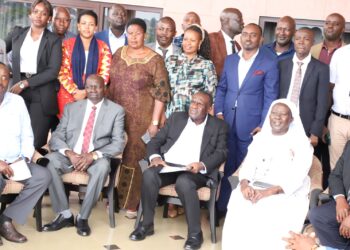The Auditor General has suggested that the Departed Asians Property Custodian Board (DAPCB) should wind up its activities since it’s now becoming a liability to government.
In his latest report for financial year 2019/2020, the Auditor General found that DAPCB which is mandated with the management of departed Asians properties that had reverted to government, was making losses at a time when its activities should have ceased.
DAPCB was established by the Assets of Departed Asians Act, 1973, a year after then President Idi Amin expelled Asians from the country in 1972.
“The accounting officer reported an annual deficit of Shs1.141 bn for the year 2019/2020. I noted that this deficit reduced by 13.5 per cent from the prior year despite revenue increasing by more than 20 per cent. This implies that the continued existence of the entity is wiping out all the proceeds from the sale of properties,” Auditor General John Muwanga said in the report.
DAPCB generates money from the disposal of redeemed or compensated properties and also from rent being collected from the properties that are not yet disposed off.
However, George William Bizibu , the DAPCB Executive Secretary, says that winding up of their activities was delayed by his predecessors.
“We cannot have any other good reason why the activities of the custodian board are still in existence. Now we need to speed up the work we have and also produce a register before handing over to government,” Mr Bizibu told Daily Monitor newspaper.
He further attributed the losses to the ongoing litigations in court and partial payment of properties that are being sold by government.
In 2019, Auditor General unearthed rot in the DAPCB.
In his special report to Parliament, AG Muwanga revealed that the board misused public funds through fictitious compensations of up to Shs1.7 billion, double allocation of properties, forged land titles, sale of assets without proper valuation and missing documents, among other illegalities.
These irregularities were blamed on ‘a busy board’ [that includes government officials such as ministers], which failed to monitor the property transactions.
Muwanga said that the Board chaired by Finance minister Matia Kasaija failed to maintain proper books of accounts and annual financial statements were not prepared. As a result, it took his office over 15 years to audit the Board activities.
According to Daily Monitor, Kasaija claimed that unspecified amount of money was paid to undisclosed claimants for properties, which were sold by the Custodian Board prior to receiving repossession claims by original owners.
However, without the schedule and respective claim files supporting the compensation amounts in question, the Auditor General said: “I was therefore unable to confirm the authenticity of these claims.”
The AG also inspected 139 properties in Jinja Municipality and found that the Board did appoint qualified professionals to value the properties. There was also no complete list of tenants and properties. The AG further discovered cases of duplicated allocation of properties, abandoned properties, irregular disposal of properties, arrears of ground rent and unscrupulous property managers. He said these irregularities resulted in loss of government properties.
Do you have a story in your community or an opinion to share with us: Email us at editorial@watchdoguganda.com












